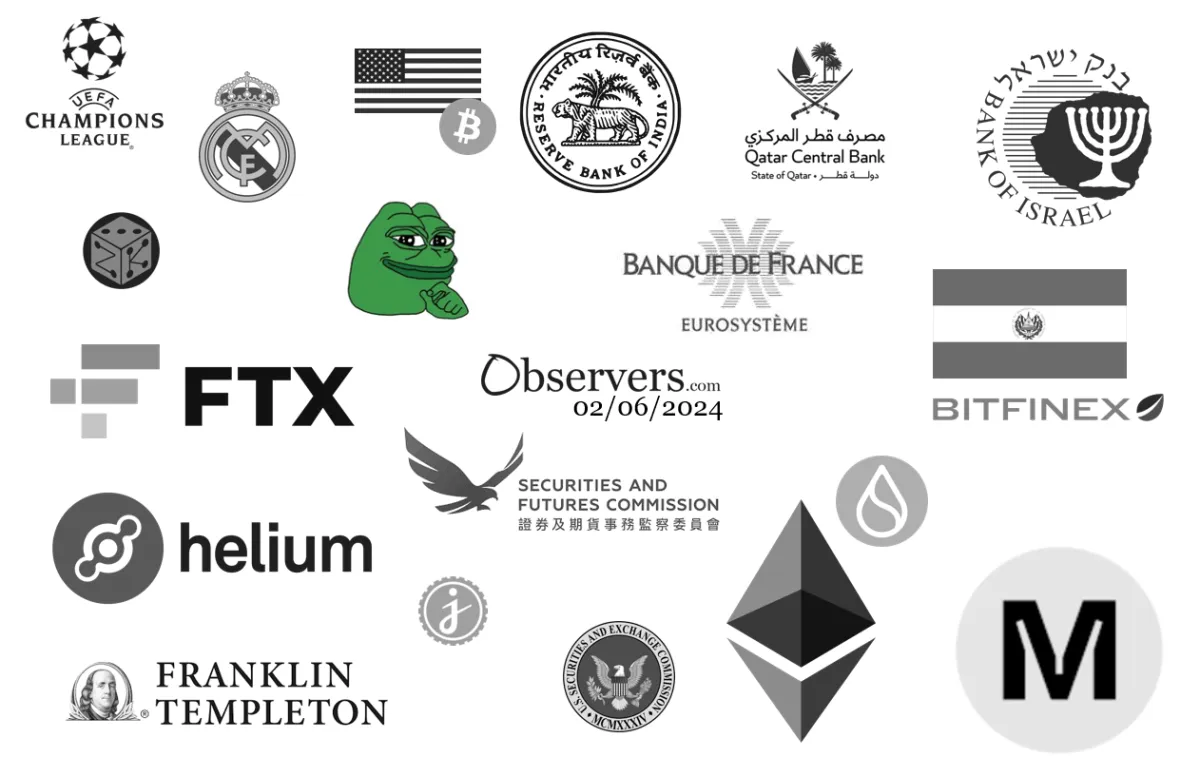
The Champions League's last match happened yesterday, and once again, Real Madrid took home the big prize. The Spanish team played at Wembley Stadium in London against the underdog Borussia Dortmund. Despite the latter dominating the first half of the game, Madrid turned the tables in the last minutes of the game by scoring two goals.
The hardest and most ardent European Cup is a comfortable competition for Real Madrid. This is the 15th time the club has won the championship since it started and the sixth victory in the last 11 seasons. AC Milan is second, with (only) seven victories.
Like Madrid owns the Champions League, Ethereum dominates the altcoin game. The ecosystem has grown over the years to become the epicenter of innovation in Web3. And just like Real Madrid, Ethereum has once again reclaimed its title and cheered the supporters by sending the Ethereum-based meme coin PEPE price to new all-time highs following the approval of U.S. ether ETF filings.
Ethereum technical developments have led to a blockchain's market reconfiguration, with fewer settlement layers and more purpose-specific layer twos. Freed from the burden of creating a new blockchain from scratch, Ethereum L2 Mode Network developers have been working on Sequencer Fee Sharing to foster an environment that incentivizes cooperation and rewards participation.
However, Ethereum's growth and development have led to questions about its decentralized and democratic nature. As major liquidity providers gain disproportionate control over the market share of staked ETH, Ethereum's decentralization ethos on the line.
To add fuel to the fire, the recent unexpected, and not yet certain, approval by the U.S. Securities and Exchange Commission of spot ETH exchange-traded funds has led some voices inside the blockchain's community to question if, as Wall Street money begins to pour into it, it can keep its democratic and anti-system philosophy.
For now, Bitcoin continues to be the leading decentralized asset where traditional finance invests. Recently, the publicly traded company Semler Scientific, which makes medical devices to treat chronic diseases, has invested two-thirds of its cash reverses on Bitcoin by acquiring 581 BTC for $40 million.
The adoption of cryptocurrencies and blockchain technology by big corporations and the masses is only going up. Mindful of this trend, Donald Trump has changed his stance on it. From wanting nothing to do with crypto, the presidential candidate is now "very positive and open-minded to cryptocurrency companies."
While a new generation of users is coming into Web3, others, such as former FTX customers, are still traumatized by the web of lies and corruption that contributed to them losing their investments in the previous bull cycle.
National authorities have stepped up their game to make crypto a safe space, and they are now quickly taking the necessary actions to protect investors and punish scammers. In the case of ZKasino, in less than a month, Dutch authorities settled a deal with the founders so that they return the funds they were accused of taking from investors.
Authorities have several strategies to keep investors safe. In Hong Kong, the Securities and Futures Commission (SFC) has opted for strict regulation regarding crypto exchanges. On May 31, several global crypto companies stopped operations in the prominent financial market due to the new legal framework entering into force. The recent incident of unauthorized leakage of crypto assets from the DMM Bitcoin crypto exchange could have been probably avoided had Japan had similar licensing requirements in place.
In El Salvador, all regulations favor crypto adoption, which has allowed Bitfinex Securities to issue tokenized debt for the construction of a new Hampton by Hilton hotel at El Salvador International Airport.
Most countries are more open to adopting blockchain than tech giant companies, to which the new technology represents an existential threat. This bit of popular wisdom was ignored by some investors who bought up the native token of Japanese startup JasmyCoin based on rumors that the project would be entering a partnership with Apple.
While investors are thrilled every time a big corporation invests in a crypto project, it might be smart to consider partnerships between smaller players in the market. DePIN network Helium has witnessed incredible growth in the last couple of months due to cooperating with innovative small projects around the world.
Franklin Templeton also recognizes blockchain's potential to drive down operations costs in several industries. In Observers' Banking and CBDC Weekend Roundup, we look at the holding company's CEO's remarks on the crypto. We also analyze the progress in Central Bank Digital Currencies projects of several jurisdictions, noting how Central Banks are starting to incorporate AI in their CBDC plans.

